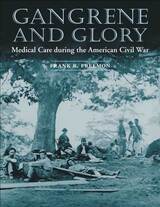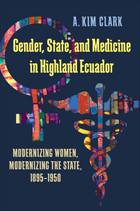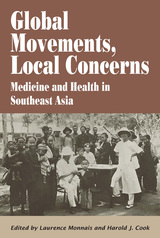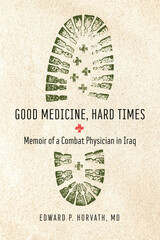6 start with G start with G

A medical doctor and a credentialed historian, Frank R. Freemon combines poignant, sometimes horrifying anecdotes of amputation, infection, and death with a clearheaded discussion of the state of medical knowledge, the effect of the military bureaucracy on medical supplies, and the members of the medical community who risked their lives, their health, and even their careers to provide appropriate care to the wounded. Freemon examines the impact on major campaigns--Manassas, Gettysburg, Vicksburg, Shiloh, Atlanta--of ignorance, understaffing, inexperience, overcrowded hospitals, insufficient access to ambulances, and inadequate supplies of essentials such as quinine.
Presenting the medical side of the war from a variety of perspectives--the Union, the Confederacy, doctors, nurses, soldiers, and their families--Gangrene and Glory achieves a peculiar immediacy by restricting its scope to the knowledge and perceptions available to its nineteenth-century subjects. Now available for the first time in paperback, this important volume takes a hard, close look at a neglected and crucial aspect of this bloody conflict.

This revised volume, originally published in Sweden, consolidates multidisciplinary research on gender inequalities in health. Reviewing previous research and presenting new empirical data from Sweden and elsewhere, the authors examine basic concepts, possible hypotheses, explanatory models, and policy solutions for the biological and social causes of the differences in health between men and women. Along with discussions of reproductive, mental, and occupational health, this book reviews critical issues such as violence and asks important questions, such as why men are dying younger.
The volume also analyzes how Sweden’s labor market, social structure, and health care system have contributed to these gender differences, and what effects these factors will have in the future. Sweden’s experience as a pioneer in health achievement and gender equality provides valuable insights into the health-related challenges remaining for the rest of the world.

Author Kim Clark relates the stories of Matilde Hidalgo and other women who successfully challenged newly instituted Ecuadorian state programs in the wake of the Liberal Revolution of 1895. New laws, while they did not specifically outline women’s rights, left loopholes wherein women could contest entry into education systems and certain professions and vote in elections. As Clark demonstrates, many of those who seized these opportunities were unattached women who were socially and economically disenfranchised.
Political and social changes during the liberal period drew new groups into the workforce. Women found novel opportunities to pursue professions where they did not compete directly with men. Training women for work meant expanding secular education systems and normal schools. Healthcare initiatives were also introduced that employed and targeted women to reduce infant mortality, eradicate venereal diseases, and regulate prostitution.
Many of these state programs attempted to control women’s behavior under the guise of morality and honor. Yet highland Ecuadorian women used them to better their lives and to gain professional training, health care, employment, and political rights. As they engaged state programs and used them for their own purposes, these women became modernizers and agents of change, winning freedoms for themselves and future generations.



READERS
Browse our collection.
PUBLISHERS
See BiblioVault's publisher services.
STUDENT SERVICES
Files for college accessibility offices.
UChicago Accessibility Resources
home | accessibility | search | about | contact us
BiblioVault ® 2001 - 2024
The University of Chicago Press









